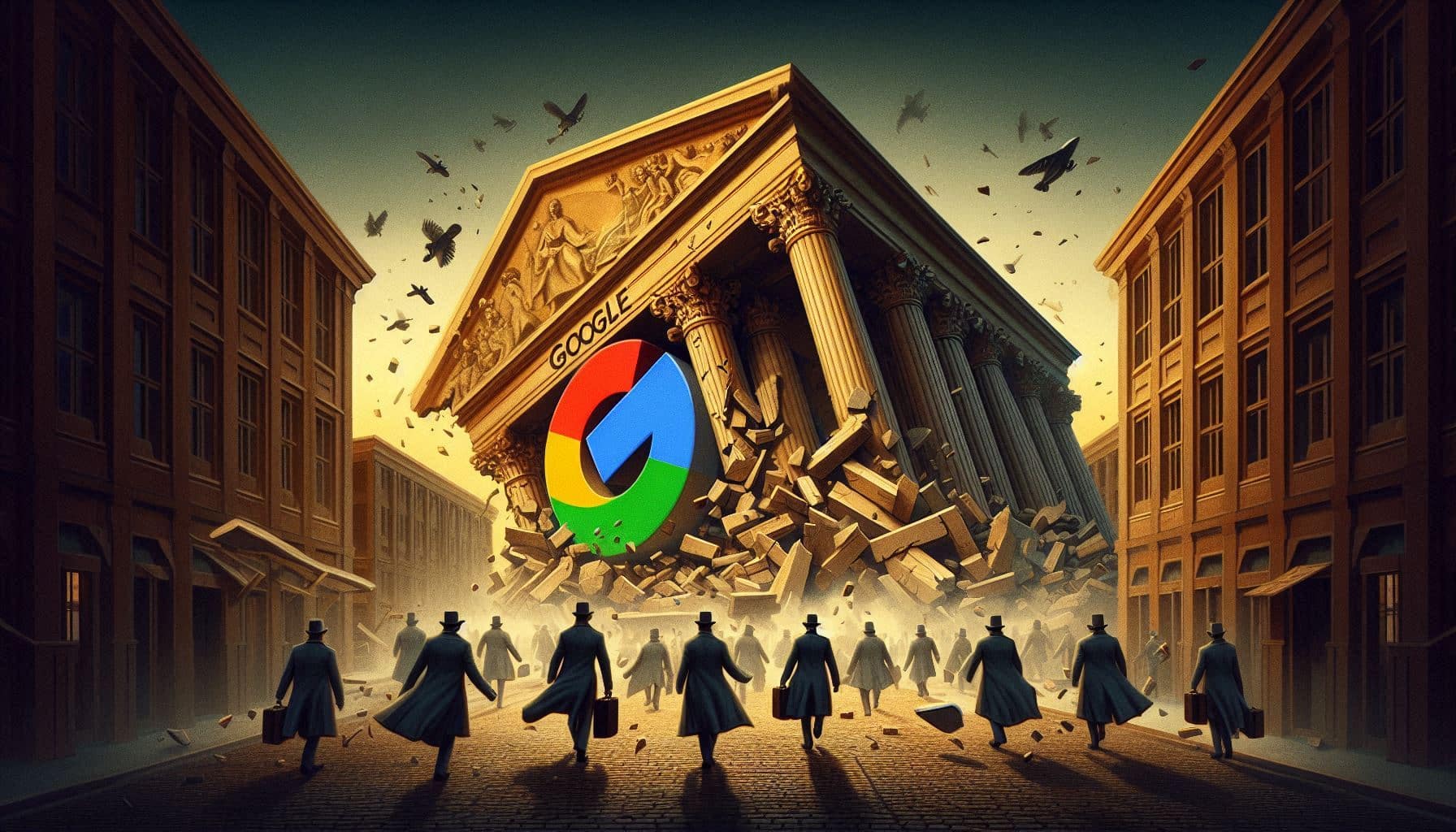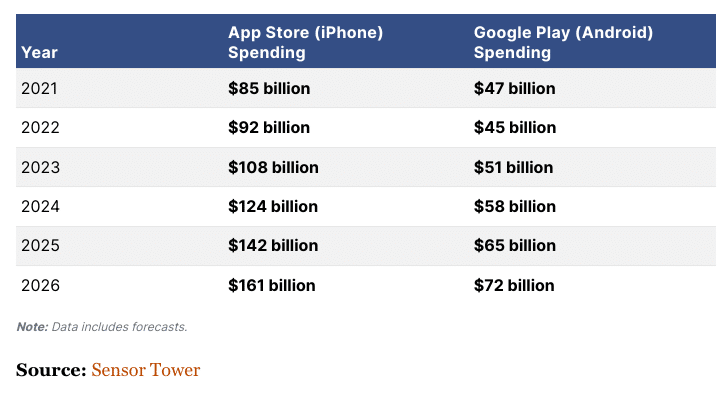US District Judge James Donato stroke Google with a ruling that could change its Play Store business model forever. Following the jury’s decision in favor of Epic Games last year, Donato ordered the company owned by Alphabet to make significant changes to its practices that could affect its top line immediately.
The ruling, which will be taking effect on November 1, will force the company to open up its lucrative mobile app store to third parties, which will result in increased competition from rival developers.
Court Orders Google to Allow Rival Platforms to Compete with the Play Store
Big news! The Epic Games Store and other app stores are coming to the Google Play Store in 2025 in the USA – without Google's scare screens and Google's 30% app tax – thanks to victory in Epic v Google.https://t.co/1g6uuw1CJB
— Tim Sweeney (@TimSweeneyEpic) October 7, 2024
For three years, Google will have to allow Android users to download rival marketplaces that directly compete with the Play Store and distribute these apps safely through its platform.
They are also prohibited from forcing developers to use Google Pay for in-app purchases. This was the issue that caused the legal fight with Epic Games in the beginning as the videogame developer complained about the hefty fees charged by exclusive marketplaces like the Play Store and App Store from Apple (27-30% on every single purchase).
In addition, Google (GOOG) cannot enter revenue-sharing agreements with developers either to distribute their applications via the Play Store or pre-install them on Android phones as this is considered an anti-competitive practice.
The order mandates that Google allow Android developers to inform users about alternative payment methods within the Play Store, link to external app download options, and set their own app prices independently of Play Billing.
Exclusive deals are prohibited as well, barring Google from offering incentives for app launches exclusive to the Play Store or deterring launches on rival platforms.
Developers will now be able to inform users about alternative payment methods that they can use within the Play Store and offer links to external app downloads. Moreover, they can set their own prices independently from Google Pay’s billing system.
Exclusive deals from Google to small groups of developers are forbidden and the company cannot offer incentives to app developers that entice them to launch their software on the Play Store or try to deter them in any way to offer their apps on other platforms and operating systems.
Three-Man Committee Will Be Set Up to Ensure that Google Complies
The judge established that a technical committee made up of three experts must be set up to ensure that the company complies with these court-mandated changes. Epic Games will select one of the three members and Google will do the same while the third member will be chosen by these two appointed individuals.
Google immediately stated that they would appeal the verdict and could turn to the Ninth Circuit US District Court of Appeals in San Francisco to hit the pause button on these provisions.
Wilson White, vice president of government affairs and public policy at Google, defended the company’s business model, stating: “Android and Google Play provide more choice and openness than any other major mobile platform. The trial made clear that we compete fiercely with Apple and its App Store, as well as app stores on Android devices and gaming consoles.”
In contrast, Epic Games CEO Tim Sweeney welcomed the verdict, declaring it a “Victory over Google!” on social media. He commented on the ruling’s implications, saying: “The Epic Games Store and other app stores are coming to the Google Play Store in 2025 in the USA — without Google’s scare screens and Google’s 30% app tax — thanks to victory in Epic v Google.”
Epic Games Hit Google Where It Hurts
Epic Games filed its lawsuit against Google in August 2020, alleging that the company had an illegal monopoly in the Android app market.
The case focused on Google’s app store practices and developer fees for in-app purchases. During the trial, Epic presented evidence that suggested that the company engaged in anticompetitive behavior, including offering lucrative agreements to device manufacturers to exclude competing app stores.
This week’s ruling could have far-reaching consequences for the success and profitability of the Android app marketplace. By opening up the Google Play Store to competition and removing barriers for rival app stores, users will now be able to choose between different platforms to download their favorite software.
Also read: Paper Trail Helped Epic Games Beat Google on Court, CEO Says
Developers will also have a wider variety of channels to distribute their apps and potentially keep a larger share of their revenue. Google argues that these changes could lead to “a range of unintended consequences that will harm American consumers, developers and device makers.”
One of the most widely cited issues that could emerge is related to the security of these apps as Google claims that it vets every single app that comes to its ecosystem before it is offered to the public.
They emphasize that rival apps may not have the capacity to ensure this kind of oversight and that could lead to issues for Android users that could harm their experience such as phones being infested by malware and viruses installed via apps that they download from these rival marketplaces.
Naturally, Google will be the most affected by this ruling as it will no longer be able to make a 30% commission on every single purchase made on Android phones.
Comparison to Apple’s App Store Case and Other Antitrust Challenges
A similar case faced a much different outcome in the US in the battle between Epic Games and Apple (AAPL) as the judge ruled in favor of the iPhone maker back in 2021 and the Supreme Court rejected Epic’s final appeal three years later.
That case only achieved the prohibition of “anti-steering” practices, which involves allowing users to be informed about the existence and conditions of using third-party payment platforms within the Apple ecosystem.
Google is also facing two other antitrust lawsuits that could have a significant impact on its business models.
In one of these proceedings, the one involving Google Search, a Judge found that Google was a monopoly already and a hearing has been scheduled for April 22, 2025, to hear about possible remedies that could be implemented to allow competitors in the internet search market to have a better chance of succeeding against Google’s long-standing reign.
Moreover, the Department of Justice (DOJ) has filed a lawsuit against Google’s adtech practices that could lead to a full-blown company breakup if the judge finds that the company is also exerting monopolistic powers in the online advertising market.
Google will surely appeal to this week’s verdict against its Android and Play Store practices and may seek an injunction to postpone the implementation of these changes. However, the judge’s ruling is yet another blow to the company’s reputation, which is now being increasingly associated with the word “monopolist.”
In December this year, Google will have the chance to propose remedies to US District Judge Amit Mehta on the Search case and will have to wait until August 2025 to hear what the court has decided on the matter.
For users, the changes that could result from these legal proceedings may not be seen or felt until a definite verdict that cannot be appealed is issued. However, Epic Games has once again proven that their battle about tech “Goliaths” is not necessarily an impossible one to win.

